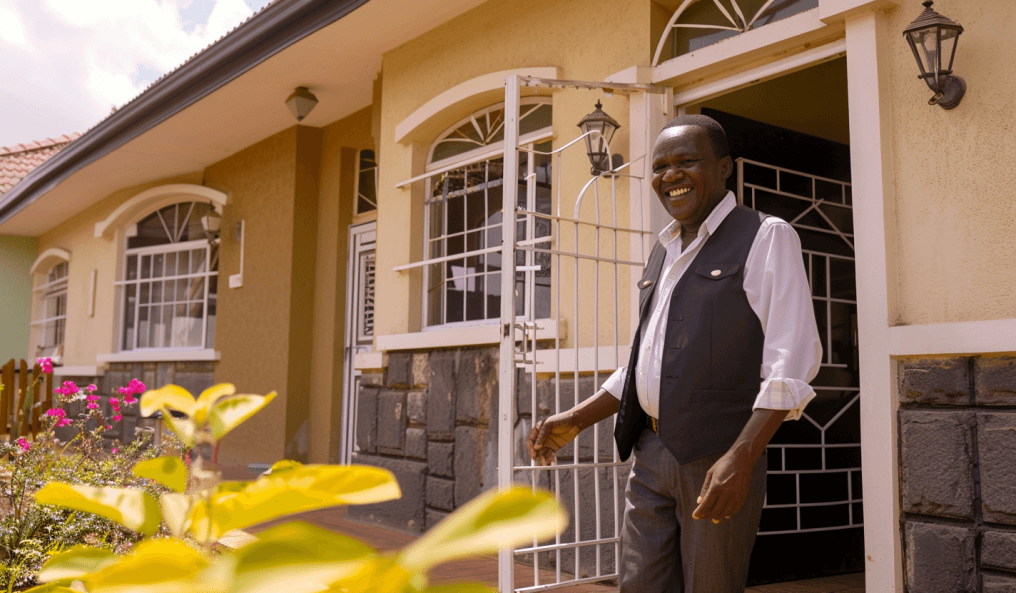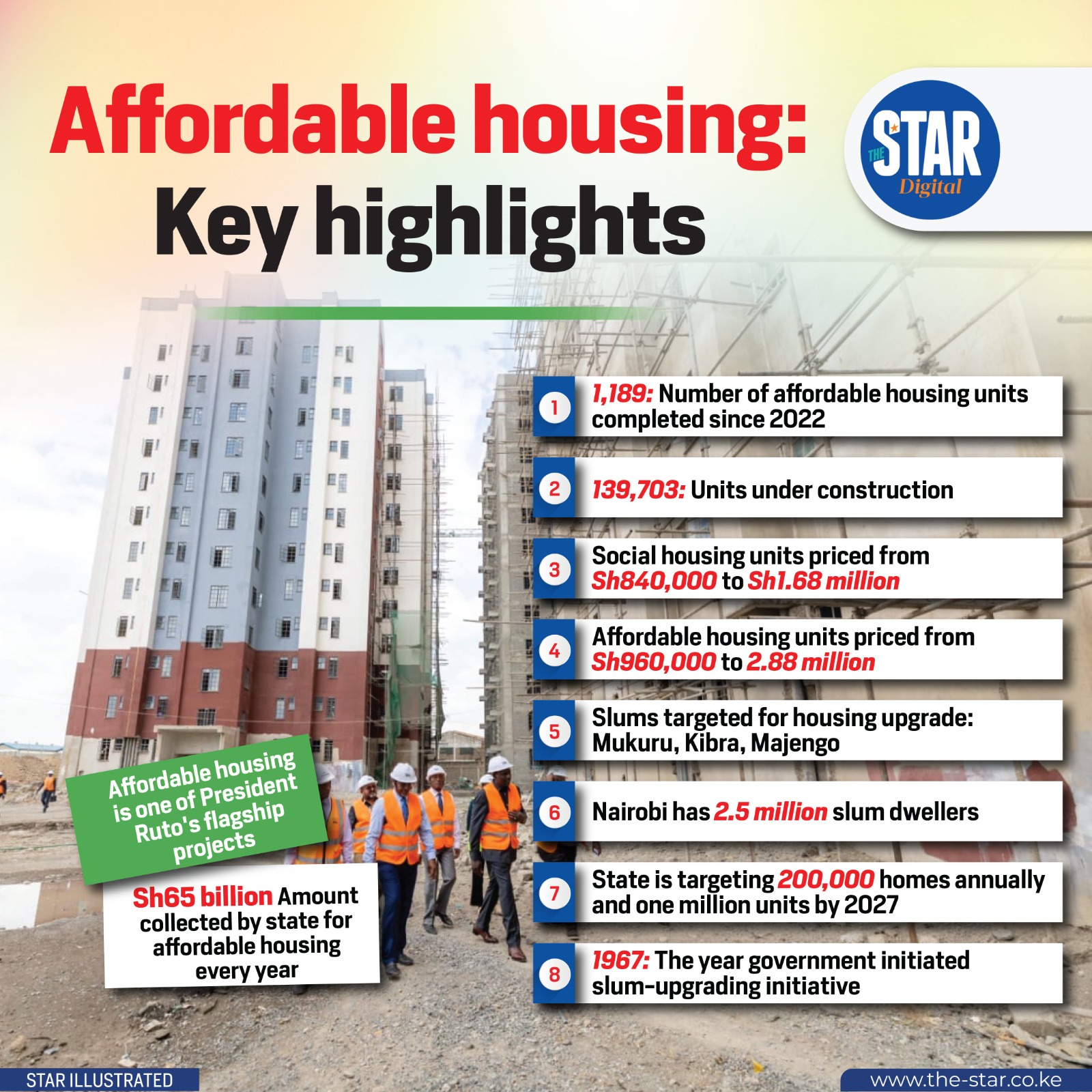Diaspora remittances continue to be a vital economic lifeline for Kenya, and in 2025, investment in real estate remains a significant channel for these funds. For Kenyans living abroad, the allure of owning property back home—whether for retirement, vacation, or pure investment—remains powerfully strong. This connection to ancestral land and the desire to build a tangible asset for the future is deeply ingrained. However, navigating the Kenyan real estate market from a distance can be inherently challenging, fraught with risks if proper precautions and due diligence are not meticulously observed. This comprehensive guide provides essential, updated information for safely and effectively investing in Kenyan real estate in 2025, empowering the diaspora to make informed and secure decisions.
Why Investing in Kenyan Real Estate is a Smart Move in 2025
Kenya, particularly its urban centers like Nairobi, offers a compelling and dynamic investment landscape. The nation's robust economic growth, rapid urbanization rates, expansion of the middle class, and ongoing, ambitious infrastructure development projects (such as the Nairobi Expressway, Standard Gauge Railway, and numerous bypasses) all contribute to significant potential for both capital appreciation and attractive rental yields. The relative stability of the Kenyan Shilling against major international currencies and government incentives aimed at promoting investment further enhance investor confidence, making Kenya an attractive proposition for those seeking to diversify their portfolios or establish a foothold back home. Beyond the purely financial returns, for diaspora investors, there is often a profound emotional and cultural connection to their homeland. Property ownership provides a tangible link to one’s heritage, a potential tranquil retirement haven, or a secure and appreciating asset for future generations, fostering a sense of belonging and legacy.
Key Investment Areas and Emerging Opportunities in 2025
While prime Nairobi areas like Westlands, Kilimani, and Lavington consistently offer stable, high-end investment opportunities, many discerning diaspora investors are increasingly discovering superior value and growth potential in emerging segments and locations:
- Satellite Towns: Areas such as Ruaka, Ruiru, Athi River, Kitengela, and Ngong are experiencing explosive growth. These zones offer significantly more affordable land and housing options compared to Nairobi's inner suburbs, coupled with substantial growth potential driven by improved connectivity and lower entry costs.
- Affordable Housing Projects: Government-backed initiatives under the Affordable Housing Programme (AHP) present unique opportunities for investment in units targeting middle and lower-income segments. These projects boast strong inherent demand and often come with attractive tax incentives for participating developers and investors.
- Purpose-Built Student Accommodation (PBSA): With steadily increasing university enrollments and persistent deficits in on-campus accommodation, PBSA developments near educational institutions offer stable rental income and resilient returns, making them a wise long-term investment.
- Coastal Real Estate: Regions like Diani, Kilifi, and Watamu are gaining immense traction for those seeking retirement homes, holiday rentals, or mixed-use developments. This trend is fueled by burgeoning tourism, a desire for a tranquil coastal lifestyle, and the convenience offered by digital platforms for remote management.
- Mixed-Use Developments: Projects that seamlessly integrate residential, commercial, and retail spaces in emerging urban nodes are providing diversified income streams and catering to the modern 'live-work-play' lifestyle increasingly sought after by young professionals and families.
Crucial Steps for Ensuring Safe Property Investment from Abroad
1. Conduct Rigorous Due Diligence (The Cornerstone of Safety)
This step is absolutely paramount to effectively mitigate risks of fraud, legal disputes, and unforeseen complications. It is non-negotiable to engage a highly reputable and licensed Kenyan lawyer specializing in real estate transactions from the very outset. Key due diligence steps, which your lawyer will meticulously execute, include:
- Title Deed Verification: The lawyer will conduct an official and thorough title search at the relevant land registry. With the ongoing digitization facilitated by the Ardhisasa platform, this process is becoming more transparent and efficient. The search will confirm the legal ownership, identify any existing encumbrances (such as mortgages, caveats, or court orders), and crucially, verify the authenticity and validity of the title deed. A 'clean' title deed should be unequivocally free of such burdens.
- Seller Identity Verification: It is vital to confirm that the individual or entity selling the property is indeed the legitimate owner or possesses the undisputed legal authority to transfer the property. This involves verifying the seller’s National ID, company registration documents (e.g., CR12 for corporate sellers), and, where applicable, board resolutions or powers of attorney.
- Land Rates and Rent Clearance: Before any transfer can legally proceed, all outstanding land rates (payable to the respective county government) and land rent (for leasehold properties, payable to the National Land Commission) must be fully settled. Your lawyer will obtain official clearance certificates as proof.
- Zoning and Land Use Compliance: Verify that the intended use of the property (e.g., residential, commercial, agricultural) strictly aligns with local zoning regulations and any specific development restrictions imposed by planning authorities. This avoids future legal complications or limitations on your property's potential.
- Site Visit and Survey Verification: While challenging for diaspora investors, it is indispensable to have a trusted representative (e.g., your lawyer, a family member, or a professional surveyor) physically visit the site. A licensed surveyor should be engaged to confirm the boundaries against the official survey map (RIM or mutation form) and verify the property's physical characteristics.
- Litigation Search: Your lawyer should conduct comprehensive searches in the Environment and Land Court and review public notices to ascertain if there are any ongoing legal disputes, court orders, or other judicial pronouncements that could potentially affect the property or its transferability.
2. Appointing a Trusted and Experienced Legal Representative
Your lawyer serves as your indispensable eyes and ears on the ground. They will expertly handle all intricate legal aspects of the transaction, from initial due diligence and meticulous drafting of the sale agreement to facilitating the property transfer and final registration process. It is paramount to select a lawyer with demonstrable experience in handling complex diaspora transactions, ensuring they can communicate effectively and transparently across different time zones and cultural contexts.
3. Understanding Secure Payment Procedures and Escrow Accounts
A critical safeguard is to absolutely avoid transferring large sums of money directly to individuals. Instead, insist that reputable law firms utilize client (escrow) accounts. These accounts hold your funds securely during the transaction period, releasing them to the seller only once all legal conditions stipulated in the sale agreement have been definitively met and validated. This practice provides an essential layer of financial security for your significant investment.
4. Navigating Kenyan Taxation and Associated Fees
Be fully aware of all applicable taxes and fees associated with property acquisition in Kenya. These typically include Stamp Duty, professional legal fees, and agent commissions. A knowledgeable lawyer or a specialized tax advisor can provide invaluable guidance on your specific tax obligations as a diaspora investor, potentially highlighting any benefits, exemptions, or opportunities for tax efficiency under current Kenyan law.
5. Exploring Diaspora-Friendly Financing Options
Several leading Kenyan banks, such as KCB and Equity Bank, have developed tailored mortgage products specifically designed for diaspora investors. These products often come with specific requirements concerning income verification, collateral, and residency status. Additionally, SACCOs (Savings and Credit Co-operative Societies) remain a highly popular and effective avenue for diaspora members to pool resources collectively and invest in property, often offering more flexible terms than traditional banks.
6. Harnessing the Power of Technology and Professional Platforms
PropTech (property technology) is revolutionizing the ease and security with which the diaspora can invest. Leverage these tools:
- Virtual Tours and Immersive 3D Walkthroughs: Many forward-thinking developers and real estate agents now offer high-quality virtual tours and 3D walkthroughs, allowing you to experience properties realistically from anywhere in the world.
- Comprehensive Online Property Portals: Websites like BuyRentKenya and Property24 provide extensive listings with advanced filtering options, making it easy to narrow down your search based on specific criteria.
- AI-Powered Matchmaking: Emerging platforms are increasingly using Artificial Intelligence (AI) algorithms to efficiently match your specific property criteria with suitable listings, streamlining the search process.
- Blockchain Technology: While still in its nascent stages for widespread adoption, blockchain technology is actively being explored for its potential to provide tamper-proof land registration and facilitate secure fractional ownership, promising even greater transparency in the future.
7. Strategic Consideration of Local Property Management
If your primary investment goal is generating rental income, it is highly advisable to engage a professional property management company. These firms can competently handle all operational aspects, including diligent tenant sourcing, timely rent collection, proactive property maintenance, and ensuring full compliance with local regulations. This professional oversight guarantees smooth operations and protects your asset in your absence.
Conclusion: Empowering Diaspora Investment for a Prosperous Future
Investing in Kenyan real estate from abroad in 2025 is more accessible, transparent, and secure than ever before, largely thanks to rapid technological advancements and ongoing government reforms aimed at improving the ease of doing business. However, ultimate success and peace of mind fundamentally hinge on meticulous due diligence, unwavering reliance on trusted and qualified professionals, and a clear, informed understanding of the dynamic market conditions. By diligently adhering to the principles outlined in this comprehensive guide, Kenyans in the diaspora can confidently navigate the exciting and lucrative opportunities available, build substantial wealth, and significantly strengthen their invaluable ties to their homeland through secure and appreciating property ownership. To ensure the most personalized and effective investment strategy, consider attending diaspora investment conferences or consulting directly with established real estate firms that possess a proven track record and specialized expertise in serving international clients. Your investment in Kenya is not just financial; it's a profound connection to your heritage and future.




